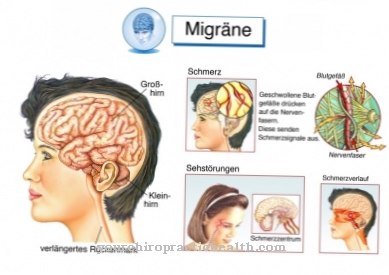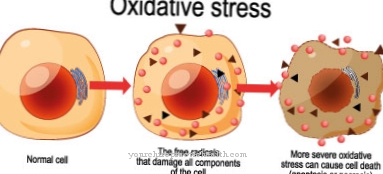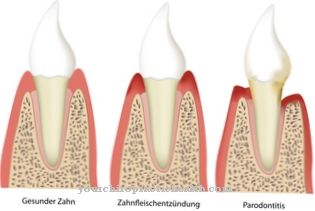Of the Hypogenitalism represents an underdevelopment of the sexual organs. This includes both the primary and secondary sexual characteristics. The possible causes are insufficient production of sex hormones and their insufficient effectiveness.
What is Hypogenitalism?

At a Hypogenitalism it is the insufficient development of the primary and secondary sexual characteristics. The underdevelopment of the external genitalia is in the foreground. In men, only a small penis develops. The scrotum is usually small and smooth. In extreme cases, there is even only one micropenis. In women, the fallopian tubes and uterus are not fully developed.
Both sexes also show an incomplete development of the secondary sexual characteristics. Hypogenitalism and hypogonadism are closely related. Both terms must not be confused with one another. Hypogonadism is the underfunction of the gonads such as testicles or ovaries, whereby too few sex hormones are produced. The lack of sex hormones causes the underdevelopment of the sexual organs (hypogenitalism).
However, hypogenitalism can also have other causes. In some cases, the effectiveness of the sex hormones is reduced despite normal hormone concentrations.
causes
There are many reasons for hypogenitalism. It should be noted that the underdevelopment of the sexual organs is not an independent disease, but only a symptom of an underlying disorder or disease. Often there is a genetic cause. Various syndromes such as Klinefelter syndrome, Turner syndrome, Kallmann syndrome, Prader-Willi syndrome or Laurence-Moon-Biedl-Bardet syndrome also show hypogenitalism as a symptom.
At least twenty different diseases or syndromes can lead to a disorder of genital development. Most of these diseases are genetic. They often lead to a lack of hormone production via hypogonadism. In pseudohermaphroditism feminus, however, there is a male genotype XY with a sufficient production of testosterone. However, due to ineffective receptors for testosterone, it cannot develop its effectiveness.
The affected person is phenotypically female, but without functional female gonads. In some cases, however, male and female sexual characteristics are equally present. Here one speaks of hermaphroditism (hermaphrodite).
But hypogenitalism can also be idiopathic. This leads to an isolated underdevelopment of the genitals for no apparent cause. It is possible that the boundary between normal and pathological genital size is often blurred due to the imprecise definition.
As mentioned earlier, hypogenitalism is just a symptom of an underlying disorder. In men, it manifests itself in a small child's penis that does not develop any further even after puberty. The term micropenis is used when it does not exceed seven cm in length when erect. In addition, the prostate can hardly be felt. Sometimes only a hazelnut-sized knot can be felt. In women, the uterus and fallopian tubes are underdeveloped. The secondary sexual characteristics are insufficiently developed in both sexes.
Symptoms, ailments & signs
The additional symptoms depend on the underlying condition. When there is a testosterone deficiency, there are many more symptoms. The prerequisite for hypogenitalism is that the testosterone deficiency occurs before puberty. Delayed puberty, small testicles, reduced fertility, muscle breakdown, female fat distribution, breast development, depression, other psychological abnormalities and much more appear.
Sometimes there is hypogenitalism without any additional symptoms. When a micropenis occurs, there is sometimes an intersex disorder in which both male and female sexual characteristics are present. However, young people in particular often suffer from psychological impairments. They often develop feelings of shame and cut themselves off from their peers.
In rare cases, they even develop anxiety disorders or depression. As a rule, those affected are not affected by the disorder in terms of their ability to erect and ejaculate. In most cases, a normal sex life is possible for the person concerned. Sometimes, however, positions and methods need to be adjusted accordingly. The power of procreation is also unrestricted.
Diagnosis & course of disease
To diagnose the underlying disorder in hypogenitalism, the concentration of the sex hormones is first determined. Depending on the symptoms that occur, genetic tests can still be carried out. The spectrum of the syndromes in question is very large, so that differential diagnoses for various diseases are necessary.
Complications
As a result of hypogenitalism, there are primarily complaints of the sexual organs and their underdevelopment. This can lead to not only physical but also psychological complaints for the patient. In most cases, the amount of sex hormones in the patient is low, so that various behavioral disorders and growth disorders develop from them.
It is not uncommon for depression and other psychological complaints to occur. Those affected are often ashamed of the disease and its symptoms and thus suffer from inferiority complexes. The quality of life is also extremely limited by the disease. In most cases, the hypogenitalism is treated with hormone therapy and no further complications arise.
If the symptoms do not go away, the underlying disease is diagnosed. Complications can arise if treatment is not initiated and muscle breakdown or anemia occurs. In severe cases, the patient can also become impotent.
However, if the hypogenitalism is only weak, in most cases no treatment is necessary, unless the symptoms particularly bother the patient. Early and correct treatment will not reduce life expectancy.
When should you go to the doctor?
If there are physical development delays in children during the transition into puberty, a check-up should be carried out by a doctor. A sudden, premature development stop in the formation of the genital organs is also worrying. Reduced breast development or small testicles should be presented to a doctor and examined.
If you experience menstrual cramps, irregular menstrual bleeding or if there is no bleeding, you should consult a doctor. In the case of sexual dysfunction, a loss of libido or visual abnormalities of the genital organs, a doctor's visit is necessary. Emotional problems, fear or shame should be discussed with a doctor or therapist. Depressive phases, a persistently depressed mood, behavior problems or a loss of zest for life are signs for which the person concerned needs help and support.
A change in personality is a cause for concern and needs to be assessed by a doctor. Increased partnership conflicts, isolation or unusual social behavior should be clarified by a doctor. An unfulfilled desire to become pregnant, an incomprehensible breakdown of the muscles or an unnatural fat distribution on the body should lead to further medical examinations. It is necessary to clarify the cause so that no additional diseases develop or the quality of life of the person affected decreases. Nodules in the area of the genital organs must be examined and treated as quickly as possible.
Doctors & therapists in your area
Therapy & Treatment
If hypogenitalism is caused by a lack of sex hormones, hormone therapy is an option. In male patients, testosterone can be given via injections or in the form of testosterone patches. Women receive female sex hormones such as estradiol, ethinylestradiol or the artificial sex hormone chlormadinone. The administration of the sex hormones causes a subsequent development of the primary and secondary sexual characteristics. However, it also depends on what the underlying disease is.
In Klinefelter syndrome, for example, there is a numerical chromosomal aberration in the sex chromosomes. The status XXY exists. They are male patients with a primary testosterone deficiency. The testosterone administration brings about a clear improvement in the quality of life. In addition to the further development of the primary sexual characteristics, the hormone treatment also works against the existing anemia, muscle breakdown, osteoporosis, impotence and depression.
Some disorders are also caused by the hormonal regulatory system. There is no isolated lack of sex hormones here. For example, the pituitary gland, the central endocrine organ, can be affected. In these cases, the cause must be identified and treated. Hormone replacement therapy, which includes other hormones, may also be needed. However, hypogenitalism does not always require treatment.
In idiopathic hypogenitalism, the question sometimes arises as to whether the size of the genital organ in this case is just outside the norm established by definition.
You can find your medication here
➔ Medicines for potency and erection problemsprevention
There is no prevention of hypogenitalism. Usually there are hormonal disorders that are often genetic. In principle, more than twenty different diseases and syndromes can lead to an underdevelopment of the genital organs. It should also be noted that hypogenitalism is usually only a symptom of an underlying disease.
Aftercare
With hypogenitalism, follow-up care in the medical sense is not necessary due to the weak genitalia. These do not require treatment, but thanks to hormone therapy they can be stimulated to grow. This usually has to take place for a lifetime, which can result in regular checks and, if necessary, a discontinuation of therapy.
However, the many different clinical pictures and syndromes of which hypogenitalism can be a symptom can force follow-up care. Examples include the necessary follow-up measures after an operation in people with trisomy 21, as this often leads to organ malformations, or the follow-up measures in people with Prader-Willi syndrome. In the latter, diabetes and obesity and all complications are common.
Hypogenitalism can also put a lot of psychological strain on those affected, which can lead to self-harming behavior. Mental illness and subsequent therapy sometimes make follow-up care in the form of further discussions or other therapies necessary.
Hypogonadism, which is very often the cause of hypogenitalism, is more often associated with osteoporosis. From this increased risk of bone fractures, it can also be deduced that follow-up care for fractures is relevant. However, this does not affect all people affected by hypogonadism.
You can do that yourself
The means of self-help are limited in hypogenitalism. Those affected with this disease are always dependent on a medical examination and therapy in order to overcome the symptoms of the disease.
The further treatment of hypogenitalism depends very much on the underlying disease, but is usually carried out with the help of hormones. In most cases, the medical treatment completely limits the symptoms so that patients can lead a normal everyday life. In particular, early diagnosis of the disease leads to rapid treatment without complications. Those affected are only dependent on the regular intake of the hormones. If the disease is diagnosed late, it can lead to disturbances in the child's development. These disturbances must be balanced out through intensive therapy. Often the parents can support their child accordingly in order to avoid symptoms in adulthood.
In the case of psychological complaints or inferiority complexes, discussions with a psychologist or therapist can also help. Conversations with family members or friends are also suitable here. Through contact with other people affected by hypogenitalism, helpful information for everyday life can be collected.


.jpg)

.jpg)



















.jpg)



